“We are the temple of the living God. As God has said: ‘I will live with them and walk among them, and I will be their God and they will be my people.'” ~2 Corinthians 6:16
 In Exodus 24, God has come down to his people on a mountain. He comes to be near them, to be with them. He’s keeping his covenant promise to live with us, to dwell among us. And you see all three of the Church sacraments in this passage. The people have assembled together in God’s presence. It’s the Day of Assembly. And the people are worshiping. They hear the Word of the Lord and they respond, “Everything the Lord has said, we will do!” They’re making burnt offerings, fellowship offerings, and sacrifices to God. The people are being washed by blood. Paul says in 1 Corinthians these people were all baptized when they passed through the Red Sea. But they are certainly being cleansed.
In Exodus 24, God has come down to his people on a mountain. He comes to be near them, to be with them. He’s keeping his covenant promise to live with us, to dwell among us. And you see all three of the Church sacraments in this passage. The people have assembled together in God’s presence. It’s the Day of Assembly. And the people are worshiping. They hear the Word of the Lord and they respond, “Everything the Lord has said, we will do!” They’re making burnt offerings, fellowship offerings, and sacrifices to God. The people are being washed by blood. Paul says in 1 Corinthians these people were all baptized when they passed through the Red Sea. But they are certainly being cleansed.
“Moses took the blood, sprinkled it on the people, and said, ‘This is the blood of the covenant that the Lord has made with you…’ Moses and Aaron, Nadab and Abihu, and the seventy elders of Israel went up and saw the God of Israel… They saw God and they ate and drank.” ~Exodus 24:8-11
God comes to his people, he cleanses us, he makes us righteous and whole, and he eats and drinks with us. We see God at the table.
But that’s not enough for our God. It’s not close enough to us. So he makes his dwelling place in the tabernacle in the desert and, later, inside the temple in Jerusalem. But that’s not close enough to us for our Father. So he comes here himself in the physical flesh and blood of Jesus. The Word became flesh and made his dwelling among us. He tabernacle with us as one of us.
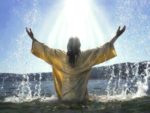 When Jesus was baptized, Luke tells us “all the people were being baptized.” Matthew says the people came “from Jerusalem and all Judea and the whole region of the Jordan” to be baptized. And Jesus joins us in the water. He meets us there in our cleansing. God’s presence is there. The dove, the Holy Spirit, the voice of God affirming and commissioning: “You are my child, I am proud of you.”
When Jesus was baptized, Luke tells us “all the people were being baptized.” Matthew says the people came “from Jerusalem and all Judea and the whole region of the Jordan” to be baptized. And Jesus joins us in the water. He meets us there in our cleansing. God’s presence is there. The dove, the Holy Spirit, the voice of God affirming and commissioning: “You are my child, I am proud of you.”
And Jesus meets us in worship. The Gospels say he went to the synagogue regularly, as was his custom. He went to the temple, faithfully, for the corporate assemblies and festivals. He never missed. And he ate and drank with everybody — rich and poor, men and women, Jews and Gentiles, slave and free, sinners and saints. He ate with Mary and Martha and tax collectors in their own houses. He set up a picnic with 4,000 Gentiles out in the wilderness. He got in trouble because he refused to discriminate. He ate with all of us!
That last night with his closest disciples, around the table, he’s eating with us. “This is my blood of the covenant,” our Lord says.
“I will not eat it again until it finds fulfillment in the Kingdom of God… I will not drink again of the fruit of the vine until the Kingdom of God comes.” ~Luke 22:15-18
And then on the day of his resurrection, Jesus can’t wait to eat with his disciples. He makes lunch plans with two of them on the road to Emmaus and when Jesus breaks the bread, they “see” him. That evening he shows up where the apostles are, right in the middle of dinner. They’re not sure it’s him — maybe this is a ghost. So Jesus asks for a piece of fish and eats it “in their presence.” Later, when people ask Peter how he knows Jesus is alive, he replies, “Because we ate and drank with him after he was raised from the dead!”
 But that’s not enough for our God. He wants to be even closer. He doesn’t want his presence with us to be limited by physical space. So he pours out his Holy Spirit on everybody. By his Spirit, God Almighty takes up residence, he tabernacles, he makes his dwelling place, inside each of us and all of us.
But that’s not enough for our God. He wants to be even closer. He doesn’t want his presence with us to be limited by physical space. So he pours out his Holy Spirit on everybody. By his Spirit, God Almighty takes up residence, he tabernacles, he makes his dwelling place, inside each of us and all of us.
We see all these sacraments on the Day of Pentecost in Acts 2.
“Repent and be baptized, every one of you, into the name of Jesus Christ for the forgiveness of your sins. And you will receive the gift of the Holy Spirit. The promise is for you and your children and for all who are far off — for all whom the Lord our God will call… Those who accepted his message were baptized, and about three thousand were added to their number that day… They devoted themselves to the apostles’ teaching and to the fellowship, to the breaking of bread and to prayer… Every day they continued to meet together in the temple courts. They broke bread in their homes and ate together with glad and sincere hearts, praising God and enjoying the favor of all the people.” ~Acts 2:38-47
Look, baptism doesn’t work because we believe all the right things and we say all the right words. Baptism saves us because God is there. God meets us in the water. He forgives us, he cleanses us, he unites with us in baptism. He connects us to the salvation death, burial, and resurrection of our Lord so he can live with us.
And Jesus doesn’t meet us at the table to shame us. It’s not, “Look what I had to do for you — remember it!” It’s his gift to us, this sacred time with him and with one another where God accepts us and affirms us, where he nourishes us and sustains our lives. It’s not, “I had to die for you — be grateful!” It’s, “I love you; I want to eat with you.” It’s an invitation.
And worship doesn’t work because we’ve got it figured out and we’re good at it. Worship works because God is with us and he’s working. His presence is with us. God is speaking to us by his Word. Christ Jesus is eating with us and nurturing us at the table. And the Spirit is interceding for us with words we can’t begin to describe.
Our actions don’t move God to grace; God’s grace moves him to action. These sacraments, these ordinances, are gifts of God’s grace to us. He initiated these things we do together. In baptism and at the table, together with God’s people in holy assembly, God says to us, “We can meet each other here.” That’s his promise: I will meet you here.
He left heaven to give these gifts to us. He came to us and suffered and died for us in order to be close to you. He wants to be near you. He wants to change you and make you whole. He loves you. He wants to eat with you. It’s an invitation.
In baptism and at the table and during the assembly, God promises, “I’m here. You may not see me every time, you may not feel it every time, but I’m here. You may feel far from me, but I am present with you in these special times and places. I am near you. I am cleansing you and nourishing you and changing you.”
This is God’s work in transforming encounter, in the sacraments. Even if you don’t see it or feel it, you can trust it.
Peace,
Allan
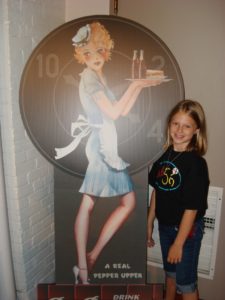 I asked Valerie last night if she did anything special for her 21st birthday. She told me that she and one of her good friends, Paige, had gone to Chick-Fil-A for lunch and Valerie had a Dr Pepper for the first time in over a month. See, Valerie is trying to eat healthier, she’s trying to exercise more — just like her old man, she’s really good at it during January and February. She ordered a water with her lunch, but Paige told her, “No, you’re getting a Dr Pepper.” Valerie replied, “I want water.” Paige insisted, “No. You want a Dr Pepper.” So, she got one. And it was amazing. I told Val, “You know, a lot of dads worry about their daughter turning 21 and looking for beer. You’re just craving a Dr Pepper.” She answered, “I love the burn.” Good kid.
I asked Valerie last night if she did anything special for her 21st birthday. She told me that she and one of her good friends, Paige, had gone to Chick-Fil-A for lunch and Valerie had a Dr Pepper for the first time in over a month. See, Valerie is trying to eat healthier, she’s trying to exercise more — just like her old man, she’s really good at it during January and February. She ordered a water with her lunch, but Paige told her, “No, you’re getting a Dr Pepper.” Valerie replied, “I want water.” Paige insisted, “No. You want a Dr Pepper.” So, she got one. And it was amazing. I told Val, “You know, a lot of dads worry about their daughter turning 21 and looking for beer. You’re just craving a Dr Pepper.” She answered, “I love the burn.” Good kid.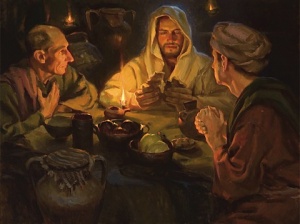 “He said to them, ‘How foolish you are, and how slow of heart to believe all that the prophets have spoken! Did not the Christ have to suffer these things and then enter his glory?’ And beginning with Moses and all the Prophets, he explained to them what was said in all the Scriptures concerning himself. As they approached the village to which they were going, Jesus acted as if he were going farther. But they urged him strongly, ‘Stay with us, for it is nearly evening; the day is almost over.’ So he went in to stay with them. When he was reclined at the table with them, he took bread, gave thanks, broke it, and began to give it to them. Then their eyes were opened and they recognized him.” ~Luke 24:25-31
“He said to them, ‘How foolish you are, and how slow of heart to believe all that the prophets have spoken! Did not the Christ have to suffer these things and then enter his glory?’ And beginning with Moses and all the Prophets, he explained to them what was said in all the Scriptures concerning himself. As they approached the village to which they were going, Jesus acted as if he were going farther. But they urged him strongly, ‘Stay with us, for it is nearly evening; the day is almost over.’ So he went in to stay with them. When he was reclined at the table with them, he took bread, gave thanks, broke it, and began to give it to them. Then their eyes were opened and they recognized him.” ~Luke 24:25-31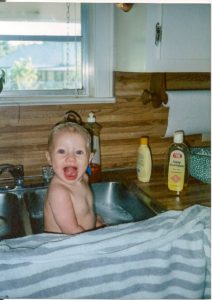
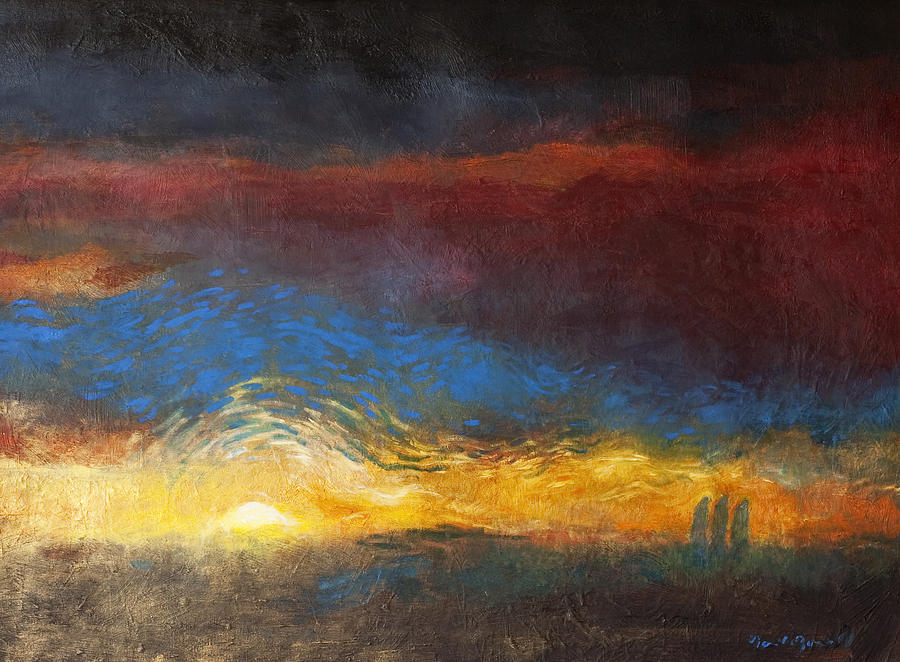

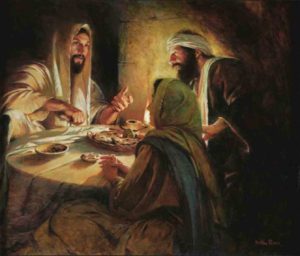
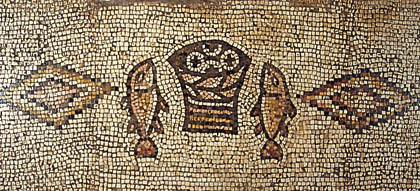





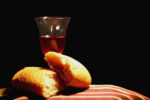

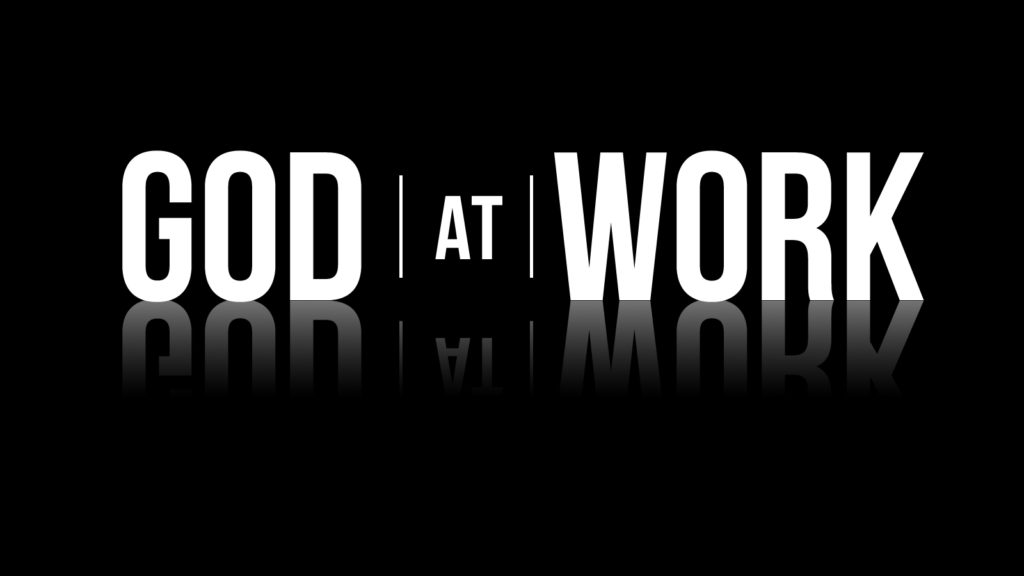

Recent Comments